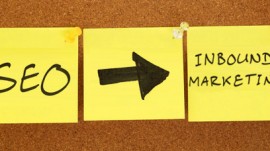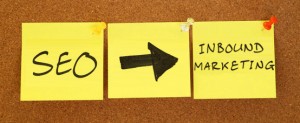Inbound SEO Company: Find the Right One

You may have read our post on “How To Choose The Right SEO Company” on Search Engine Journal, but today we are going to talk about how to partner with the right Digital Marketing Agency for your business. Choosing a digital marketing agency is a complicated process, with many options available. Today we are going to discuss a “buyers guide” if you will on internet marketing agencies. This article is written for advertisers and marketers who are looking for an inbound SEO company to handle their online marketing initiatives.
What is the definition of an interactive agency? They are companies that provide marketing services and specialized advertising in the digital world. These “agencies” are independent from the client and will provide an outside specialized view of the efforts it may take to sell additional products or services in the digital space.
“Digital Agencies” also knows as digital marketing firms, digital advertising agencies etc normally provide the following services:
- Digital lead generation
- Digital brand development
- Interactive marketing strategies
- Digital communication strategies
- Rich media campaigns
- Interactive video
- Website design
- Website development
- Digital learning tools
- Email marketing services
- Digital PR – digital public relations
- Search engine optimization
- Pay per click advertising
- Social media marketing
- Mobile campaign management
- Mobile campaign development
- Digital Content marketing
- Digital content management services
- Data mining
- ROI – return on investment assessments
Most agencies that currently offer a broad range of services generally started in the search advertising channel. Search advertising is still considered the foundation of digital advertising. Search still does and always will have a predominant share of the advertising dollars spend on the internet.
Still looking for an agency partner? This article will help you choose the right digital marketing partner for your business.
Types and Services: Digital Advertising Agencies
Every company needing a digital advertising and marketing solution varies as does the digital agencies themselves. On the higher end for global enterprises are agency holding companies that own hundreds of smaller full-service digital agencies throughout the world. On the other end of the spectrum we have specialty or boutique agencies whom provide specialized channel-specific digital marketing services with example focuses as mobile messaging programs, social media marketing, and SEO link building campaigns. We also have agencies that offer professional services that focus on strategy such as web design and branding. We need to remember that each agency and agency types have their own set of culture, strengths, and weaknesses.
Benefits of agencies that are owned by large media or holding companies are:
- Diversity of capabilities from sister or co-owned agency properties
- Priority referrals, and built-in sister agency relationships
- Family of company pricing and efficiencies.
Full-service digital agencies usually manage a brand’s presence on many diverse channels, provide professional services, manage the brand’s advertising technology and analytic platforms.
Benefits of working with a boutique style agency with a specialty focus include:
- Tactical expertise that gets the job done
- Granular channel strategies for greater results
- Access to key agency decision makers
- Access to executive personnel
- Lower spending minimums
Specialty agencies also offer a subset of services not offered by full-service agencies. For example, these channels may be specific such as social media marketing or SEO, extending all the way to display advertising and email marketing campaigns. These services are often referred to by executives as “agency long tail” services with mid-market opportunities that larger holding company agencies try and tap into. Many large agency executives with strong client relationships in recent have left their firms to open their own specialty agencies.
What are the capabilities of a digital marketing agency?
The chart above, the digital agency capabilities are broad in range. While a full service agency can provide a breadth of professional and channel services, while a specialty or boutique agency can provide a very in-depth approach within a channel to include but not limited to proprietary technology for PPC, SEO, client training, integration systems, and customization of campaigns and approach.
Proprietary Technology vs. Professional / Boutique Services
Professional agencies usually view their role as winning strategists that utilize 3rd party software and tools with ability to interpret data that provides actionable results to achieve their client’s goals. They are somewhat of an unbiased 3rd party themselves.
Agencies with proprietary tools and platforms do have a small competitive advantage over 3rd party tool sets due to the fact that the 3rd party toolsets are widely available. Most professional agencies end up drowning in data and not knowing how to provide an actionable plan from that data is where proprietary tools come into play. Proprietary tools agencies will provide technology platforms built and customized to the client’s needs and objectives. These tools are generally AUTOMATED in nature that collect, analyze, and optimize data for their clients.
Do note, that it does take “smart people to run smart technology”. Ever heard that your computer is only 10% as smart as you are? Keep in mind these tools can only take you so far in your conversion paths. You will have to have smart people to run the technology regardless and marketers or analysts with detailed and keen insight and understanding will have to channel those focus’ across for each individual customer.
Paid, Owned, and Earned media. What is the different?
The lines are continually blurring between each.
In July 2013 Google decided to introduce ‘enhanced campaigns’ which started a whole new set of rules for paid search adverting. What does this mean for agencies? Agencies now have to allocate additional resources to better understand and run campaigns under Google’s new system.
In addition to Google’s update and algorithm changes, marketers must now keep up with how the digital media is being consumed via smartphone and tablet usage. The digital marketing landscape is ever changing. What this means is agencies now have limited resources, higher C-level expectations, and advertisers and marketers alike are turning to digital agencies for their knowledge, skills, and expertise.
What are the Digital marketing trends?
- As digital share grows mergers and acquisitions continue to reshape the agency landscape.
- Internet ad revenue is on an upward trends with mobile
- Client and agency ecosystem continually grows more complex as time goes on
Trend #1: Agency Landscape Reshaped due to mergers and acquisitions
Online / Internet / Digital share of Ad Revenue continues to grow
Trend #2: Mobile.
Mobile continues to drive gains in the digital ad revenue segment with a triple digit increase for online publishers and ad networks. Data has been provided by IAB Internet Advertising Bureau.
Trend #3: Complexity of client/agency ecosystem
There is an increasing complexity of advertiser’s demands looking for best of breed channel expertise and a most holistic, integrated digital marketing strategy. Enterprise marketers on the other hand are in particular looking for an Omni channel approach that provides a 360 degree view of marketing and advertising campaigns. This is to include both digital advertising and offline advertising.
How do we close the online and offline advertising gap between agencies?
As of recent the client/agency relationship has been utilize an AOR or “agency of record” to handle all of their public relations, PPC, SEO, creative, social, and media buying strategies. While at the same time, C-level executives are now getting involved in “managing” or being a middle man between agency relationships.
The leading national advertisers have a multiple agency relationship. Many cases have shown that they have multiple companies handling the same overlapping channels such as social, search, and others. Which can get to be a ‘gaggle’ and a whole other set of issues we won’t get into here. Example diagram below.
How to Choose A Digital Agency Step by Step:
Step 1: Internal Company Self Assessment
Do you actually need a digital agency to handle your digital marketing and advertising needs?
- What are the primary objectives we want to achieve?
- Do we need an agency or a specialist?
- Who will manage the agency relationships?
It is also vital to assess your own business’ culture and priorities before moving forward with a digital agency relationship taking into consideration several factors:
- Accountability – How much do you want to be involved and how proactive do you want the agency to be in goals and objective targets?
- Flexibility – Be wary of scope creep. Even if it costs additional time and money is the digital marketing agency flexible enough to help you hit your goals if you so do decide to change them mid-way through the campaign.
- Communication – who will be your main points of contact and communication within the digital marketing agency relationship?
Step 2: Fee Structures
Make sure you have a solid understanding of fee structures, they vary greatly and all have their positives and negatives associated with each.
Step 3: Begin the process of phone calls, RFI’s, and RFP’s
You’ll need to have all your ducks in a row for this step. Ensure you have your goals and a general idea of what you want to accomplish in the digital marketing space.
Step 4: choose the right agency based upon the following criterion:
- How long has their Brand been around and how is their reputation.
- Prefer channel specialists or a one-stop shop?
- Do they have any vertical market expertise, is this important to you?
- What is the culture of their company, will we mesh well?
- What staff do they have on board and talent that we can trust delivers results?
- Do they have any client references?
- Who and what are the expectations for client support?
- Are we comfortable with the agency pricing model?
- What can we expect as “work delivered” from our digital marketing partner?
Step 5: Agree to terms
Conclusion: how to choose the digital marketing agency that is right for your business.
Each advertisers and client relationship models and situations are unique, thus it takes a unique relationship to make all these things mesh well together for your ability to have a successful digital marketing partner to work with. Ultimately, an agency’s core values, talent, and dedication to your business will determine the success of your relationship and your digital campaigns.
Tagged Under: inbound seo company
